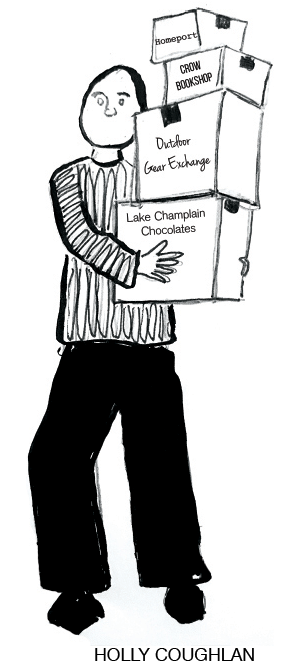Increasing wage will help local businesses
October 13, 2018
Want to hear something obvious?
Raising the minimum wage increases the take-home pay for low-income workers without hurting job growth.
A study released this month from the Center on Wage and Employment Dynamics at University of California, Berkeley shows that minimum wage increases are working as policy-makers intended: they increase pay for workers at the bottom and do not jeopardize job growth.
The study looked at food sector workers in six cities that have raised their minimum wages above $10 an hour in recent years – Chicago, Washington, D.C., Oakland, San Francisco, San Jose and Seattle.
This common sense policy to raise the floor on our economy leads to workers with bigger paychecks and allows for continued job growth across the economy.
The Berkeley study also backs up what Vermont Businesses for Social Responsibility members have been saying for years: taking care of your employees is also good business. VBSR business leaders know that when their workers are well paid and supported with strong workplace policies and benefits, they are easier to recruit and are more productive.
Vermont legislators did the right thing this year by passing S.40, a bill raising the state’s minimum wage over a series of several years until it hits $15 an hour in the year 2024. This was not the quick route to $15 an hour that many labor advocates wanted, but it was a measured, thoughtful approach that balanced the interests of workers and businesses.
Unfortunately, S.40 was vetoed by Gov. Phil Scott. VBSR believes the governor, who has a reputation as a thoughtful moderate, made a big error in stopping that pay raise for Vermont’s most vulnerable workers.
Raising the minimum wage is vital to a strong economy and to give Vermonters a leg up to achieve self-sufficiency.
The United States is projected to add 8 million new jobs to the economy between now and 2022, but most of that growth will occur in fields that pay only slightly more than the national minimum wage of $7.25 an hour. Many of these new low-wage jobs are in vital parts of the economy.
VBSR has long supported developing what we call “livable jobs” – a vision for economic growth centered on the creation of jobs with good wages and benefits. Income inequality has slowly chipped away at the earnings of lower and middle-income Vermonters.
A plan like S.40 would result in pay raises for nearly 90,000 Vermonters – many of them household breadwinners and single parents. Breaking up these raises over a six-year timeline also gives Vermont businesses time to plan and adjust.
In 2019, Vermont needs to lead on this issue and raise the minimum wage, give hard-working Vermonters a raise and move toward a stronger and more sustainable economy that works for everyone.
VBSR looks forward to helping make that vision come true.
Daniel Barlow is the public policy manager at Vermont Businesses for Social Responsibility, a nonpartisan organization representing more than 650 businesses.








